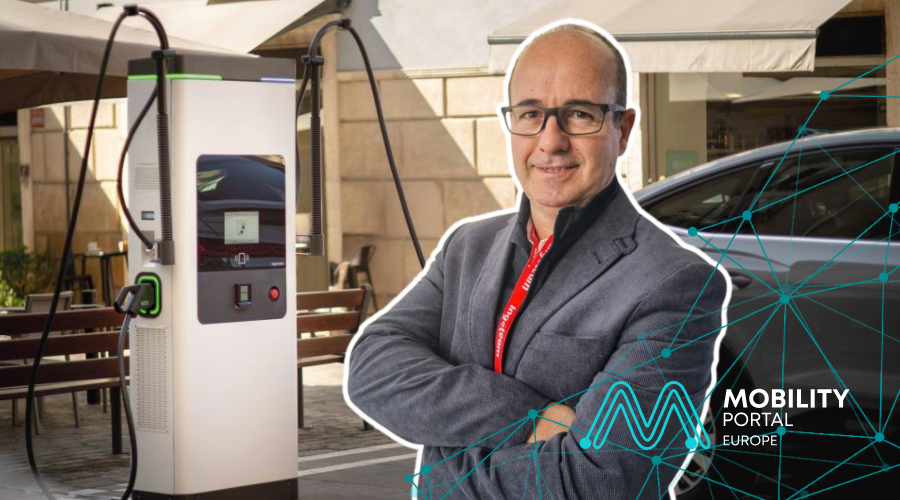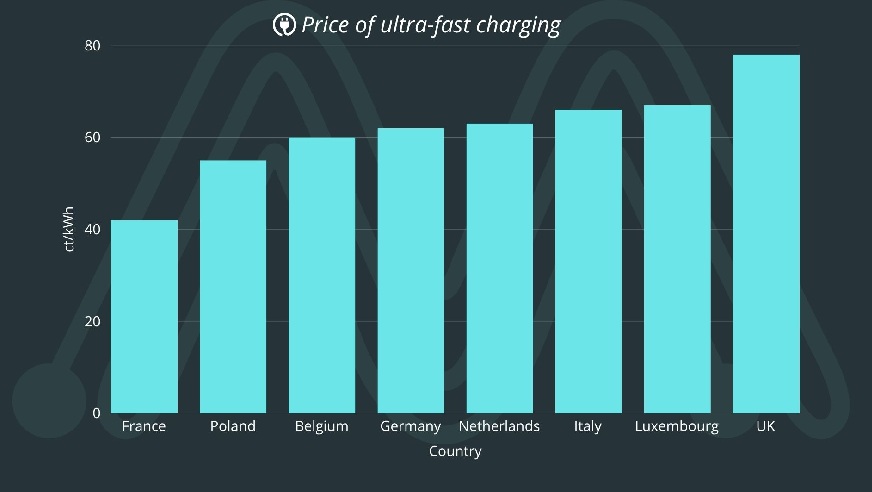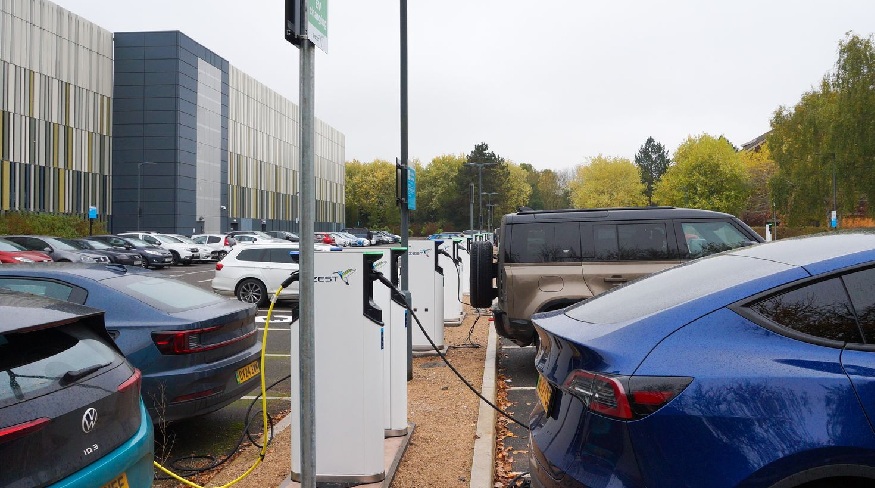Ingeteam’s internationalisation strategy is already taking concrete shape with active operations in France, the United Kingdom and the United States, as well as new subsidiary in Germany.
“Our international strategy is based on leveraging existing subsidiaries in sectors such as solar or wind and adapting them to the charging business,” explains Juanjo Figueruelo Hernández, KAM at Ingeteam.
The Spanish company tells Mobility Portal Europe how it aims to position itself as a key supplier in fast-charging infrastructure, especially in the high-power segment.

In France, Ingeteam has implemented solutions on IZIVIA’s motorway network, part of the EDF group, and has even customised chargers for the McDonald’s restaurant chain, specifically designed for high-turnover locations.
In the United Kingdom, the company works with National Grid, the British grid operator, and has incorporated accessibility requirements in accordance with local PAS standards.
Germany as regulatory and operational axis
One of the distinctive features of Ingeteam’s expansion is its anticipation of key technical regulations in Europe.
This is the case with the MID Directive, which establishes that billable energy measurement in chargers must be carried out in direct current, after the conversion process, thus eliminating losses as a charge to the user.
This requirement originated in Germany, where it is mandatory, and is already being replicated in France, Italy, and soon, Spain.
“We already apply MID in our models. This avoids future regulatory conflicts and provides transparency from day one,” the executive states.
This regulatory approach has been one of the driving forces behind the opening of a subsidiary in Germany, which will allow products to be adapted to the local framework and access the DACH market (Germany, Austria and Switzerland), key for developing infrastructures aligned with the new European AFIR regulation.
Megawatts for trucks: Ingeteam joins MCS development
In parallel, Ingeteam is developing its own MCS (Megawatt Charging System) charger model, specifically designed for heavy vehicles and logistics fleets.
The objective is to reach a power level of 1.7 MW, even surpassing the initial 1.5 MW models already in pilot phase by other manufacturers.
The system is under development and is expected to be presented at Power2Drive 2026, once technical validations are complete.

According to Juanjo F., its use will focus on specific cases of overnight charging or industrial fleets, rather than individual users.
“A truck can have a battery five times larger than a passenger car. Taking advantage of that capacity for bidirectional charging or energy backup will be key in logistics centres,” he highlights.
The trend also responds to the EU’s decarbonisation targets for heavy transport.
The regulation establishes charging points for trucks every 120 kilometres on the TEN-T network starting in 2028, along with mandatory emission reductions of 45% for trucks and 90% for buses by 2030.
Consolidating a comprehensive vision of mobility
Beyond national deployment in Spain, Ingeteam aims to consolidate a global, regulatory-aligned and technically robust proposal, capable of serving both public and private fleets, charging network operators, service stations and large corporate accounts.
The strategy includes local manufacturing for markets such as the United States, where designs are adapted to NACS connectors and specific standards.
All of this under a clear premise: to develop products that do not become obsolete in the face of future regulations, with modular expansion capability, integration into advanced digital platforms and real energy visibility for the user.
DISCOVER MOBILITY PORTAL DATA
Discover Mobility Portal Data, a new exclusive market intelligence platform offering reliable data and key reports to support smart decision-making across the automotive sector — covering both combustion and electric vehicles, as well as charging infrastructure.
Research, trend analysis, and neatly organised statistics presented with clarity and precision, alongside up-to-date insights — all just one click away.
With Mobility Portal Data, good decisions are on the horizon.
READ MORE
-
Siemens: “No hay que ver la movilidad eléctrica como una carga adicional, es una aliada del sistema eléctrico”
El responsable de eMobility Iberia de Siemens explica cómo la carga flexible, el V2G y los modelos peer-to-peer pueden contribuir a estabilizar la red y crear nuevos modelos de negocio.
-
MPD: Which european countries have the highest and lowest ultra-fast charging tariffs?
EV charging rates vary across Europe depending on local energy sources and market conditions. For example, while France offers ultra-fast charging at €0.42/kWh, Italy reaches €0.66/kWh. How does each country rank?
-
UK University Powers Up Its Campus with 142 New EV Charging Points
The rollout is part of a 1.3 million-pound investment by Zest that will see the CPO provide and manage charging facilities at the University over the next 15 years.











